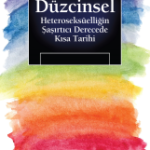Dr. Debjani Bhattacharyya, Assistant Professor of History at Drexel University and a 2014 graduate of Emory’s PhD program, published Empire and Ecology in the Bengal Delta: The Making of Calcutta with Cambridge University Press in 2018. Maya Jasanoff, the Coolidge Professor of History at Harvard University, recently featured Empire and Ecology in the Bengal Delta in an article in The New York Review of Books. Bhattacharyya was advised by Samuel Candler Dobbs Professor of History Jeffrey Lesser. Read an excerpt of Jasanoff’s review below along with the full article, “Lost Calcutta.”
“In her innovative new book, Empire and Ecology in the Bengal Delta, Debjani Bhattacharyya, a professor of history at Drexel University, describes how Bengalis had their own story about Calcutta’s origins. “Legend has it that the city was born when the ocean started churning, and a tortoise,” pressed between the mountains and the force of Ananta, the infinite, “gasped out a deep breath.” Its breath made the Bengal Delta, a vast 40,000-square-mile area where the Ganges and Brahmaputra rivers seep into the Bay of Bengal. This legend, like the legend of Job Charnock, also carries an element of truth: Calcutta rests on shifting ground. It should be no surprise that its fortunes have shifted too.”


